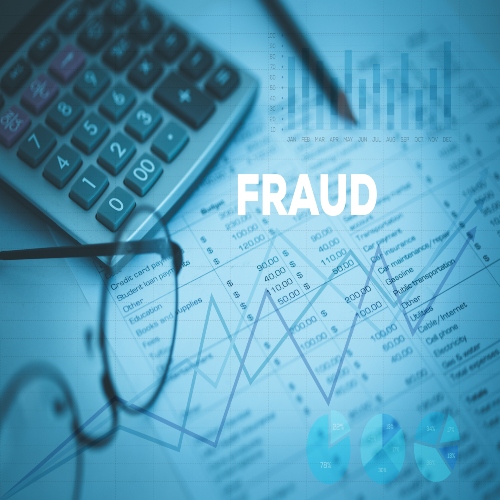DC Federal Fraud Attorney
CALL 24/7 OR FILL OUT THE FORM BELOW TO DISCUSS YOUR CASE
Featured In






Contact Monument Legal
Washington DC Federal Fraud Attorney
 When you’ve been charged with fraud, the government has to prove that you lied about something or misrepresented it with the intent to deceive, thus causing financial or legal damage to another party.
When you’ve been charged with fraud, the government has to prove that you lied about something or misrepresented it with the intent to deceive, thus causing financial or legal damage to another party.
To be convicted of fraud once you have been charged, the government must determine whether it has sufficient evidence to prove that you did commit fraud and had the criminal intent necessary to meet the requisite elements for fraud. If you are being accused of fraud, you must contact an expert and experienced DC federal fraud attorney to help fight your charges with either the Office of the Attorney General for Washington DC, or the United States Attorney’s office, and of course, if the case against you were to keep proceeding in the DC Superior Court or the US District Court for DC.
Keep reading to find out more about how an expert DC and federal fraud attorney can help in your case:
Health Care Fraud
The federal government takes healthcare fraud cases very seriously. It aggressively investigates every suspected case of healthcare fraud. As a healthcare provider, being the subject of a fraud investigation can bear severe and long-lasting consequences. If you are found guilty of the offense, your medical license can be revoked, you can be barred from reimbursement programs from the government, such as Medicaid or Medicare, and you may even spend some time in prison. In short, it could be the end of your professional career.
Two theories form the basis of a healthcare fraud case. The first theory involves healthcare providers accused of upcoding. This is where a health care provider uses a different billing code for a procedure that pays more than is justified by the code. The second theory involves healthcare providers accused of billing for procedures they didn’t perform or procedures for patients that do not exist.
Bankruptcy Fraud
Bankruptcy is a legal proceeding that declares individuals or businesses legally unable to pay debts, thus allowing them to wipe out most of their debts and get a fresh start. The Department of Justice’s US Trustees Program oversees the administration of bankruptcy cases and refers cases of suspected fraud to the FBI and the US Attorney’s office. Suppose you’ve been accused or charged with bankruptcy fraud. In that case, the government suspects you to have filed for bankruptcy and produced false documents, lied, or tried to conceal financial assets to protect those assets from bankruptcy. However, just like in other criminal cases, the government has to prove beyond a reasonable doubt that you are guilty to be convicted of this crime.
Mortgage Fraud
Since the housing market crash of 2008 and the subsequent economic crisis, federal agencies have aggressively pursued mortgage fraud cases. The number of loan/mortgage institutions providing low-rate home mortgages/loans has been significantly reduced due to more stringent underwriting standards, as a result. In contrast, foreclosures, delinquencies, and default mortgages have gone through the roof. Furthermore, distressed loan institutions target homeowners who desperately need to save their homes. This seems to be happening through loan refinancing and or modification. The FBI’s Financial Institution Fraud Unit (FIFU) is tasked with investigating, among others, these specific forms of mortgage fraud:
– Silent second mortgages
– Equity skimming
– Unlawful property flipping
– Foreclosure rescue schemes
– Loan modification schemes
Suppose you are being charged with any of the above. In that case, you should consider retaining the skills of an expert, experienced Washington DC federal fraud attorney like Nabeel Kibria of Ervin Kibria Law.
Sentencing In Fraud Cases
After the uproar caused by white-collar scandals such as Enron and WorldCom, Congress has legislated harsher sentencing guidelines to increase the recommended range for what constitutes white-collar offenses, including fraud offenses.
Factors in Sentencing
Several factors will affect your potential sentencing if you are guilty of fraud. The first is the loss amount, defined in Section 281.1 of the Voluntary Sentencing Guidelines. These guidelines stipulate that the loss amount is the amount of financial loss that can be reasonably predicted from the accused party’s fraudulent actions.
In addition, several other factors will be covered in the guidelines that will affect the offense level. These include but are not limited to the number of victims involved, if the convicted individual was in a position of power during the commission of the offense and whether sophisticated means were used.
Reach Out To A DC Federal Fraud Attorney
Regardless of the crime, you are accused of fraud; it would help if you reach out to an experienced DC federal fraud lawyer like Nabeel Kibria of Ervin Kibria Law. A skilled federal fraud attorney can help you aggressively fight fraud and other white-collar criminal charges, including RICO and the Foreign Corrupt Practices Act (FCPA). To learn more and understand the best action to take in your case, contact expert DC federal fraud attorney Nabeel Kibria of Ervin Kibria Law today at 202-689-4439.
